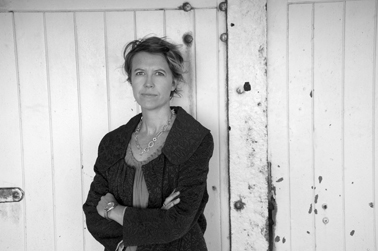Okay, I’m someone who hates wasting my reading time, so if you don’t like the idea of writing ‘rules’ don’t read any further (but do read rule 5).
Personally, I love/hate writing rules. It’s very appealing to think that if you follow The Rules then you will write The Book, but what a load of shite. It’s a bit like those magazines that give you 5 bullet-points for happiness. You should read any rules with a coarse grain of salt. Generally, I only apply the rules that fit with what I’m currently trying to do. I heard on the radio that this is pretty much what humans do – ask questions that support their preconceived answers. The other great thing about these rules, maybe aside from the one about double entendres, is that they can all be applied to running.
I’ve been taking my writing seriously for ten years now. Some days I think I’m getting the hang of it, and then I go and read a book like Prowlers (Maurice Gee’s masterpiece from 1987) and realise that I have neither the talent nor experience. So, until I do, I shall fall back on The Rules. Here are some of the good ones in no particular order, collected just for you.
Read your work aloud to yourself.
Kate Camp told me this years ago – basic good advice. You can hear the sound of your work better out loud. You’ll pick up clangers, repetitions and typos very quickly. You’ll hear your characters’ voices. Does that dialogue sound real or like what a character in a book might say?
Don’t give up your day job.
This one I’ve followed and ignored. You will not make money from writing. You will not be happy if you don’t write. It’s a bind and a constant frustration. The main thing is that if you want to write you must make time for it, regularly, whether it’s your day job or not. The time might be 5am (Nigel Cox) or right through the night (William Faulkner). Whatever. Just do it. (See how the running application works?!)
Rule 5. Every hour get up off your arse and move around for a few minutes.
Okay, this one is from my osteopath. This is probably the only rule anyone should follow. I’ll go further – always follow this rule.
‘Don’t be making time changes on your first page. Give your reader and character a chance to settle.’
This from the astonishing and terrifying Irish short fiction writer Claire Keegan. I sat in on a workshop she ran last year at Auckland Writers and Readers Festival, where she gave out a lot of rules. This was one of them. I’m currently testing it in my next novel, where I have a time change on the first page. I wrote the opening passage, then looked up on my wall and saw this rule. (I hang her rules on my study wall). She’s probably right. We’ll see.
Don’t quote songs.
This is practical advice. It takes an age for a music publisher to give copyright permission and you will need to pay for it. Unless David Bowie is a good friend, don’t use his lyrics in your work.
‘Do not make use of double entendres. Since your work is intended to be overtly erotic, you should only concern yourself with single entendres. If you happen to come across a double entrendre in one of your drafts, a handy trick is to divide it down the middle and move the second half to any section of your manuscript in which entendres may be lacking.’
This is taken from Seth Fried in an article on erotic fiction, read the full article here.
I love this rule for its mathematics. It’s not erotic fiction, but my novella Homefires had a double entendre joke in it. When I wondered aloud the wisdom of putting a joke in a story, Damien Wilkins (my MA teacher while I was writing Homefires) said that he’d read a story with a good joke in it. Well, it’s a good joke and I copy it here for your reading pleasure:
A man walks into a bar and asks the bartender for a double entendre. So the bartender gives him one.
In the future I’ll be using more entendres, double and single, halved and quartered, hung and drawn, in my work.
It’s a long, hard, slow game.
This gem from Gregory O’Brien. He was my first writing teacher back in the day when I thought I might be a poet. He’s talking about marathons. And writing. They’re kind of the same thing.
Write to amuse yourself.
Seriously, if it doesn’t amuse you then what’s the point? This is my litmus test. If the characters and the words on the page aren’t making their own electricity, then probably the scene and the words are dead. Discard and start again. Or find the one sentence that is alive and grow a new paragraph around that. Frances Wilson reviewing Hilary Mantel’s Bring up the Bodies in The Observer finished her review saying ‘Mantel, like Cromwell, seems not to mind if we are there or not: she is writing, as he was living, for herself alone, where they said… well, we should all aim to write as entertainingly as Mantel.’ Indeed, we should all aim to write as entertainingly as Hilary Mantel.
Kirsten McDougall’s first book The Invisible Rider was launched last weekend. She was a winner of The Long and the Short of It short story competition in 2011, in which her story ‘Clean hands save lives’ won first prize in the short section. You can catch her at next week’s Writers On Mondays with Gigi Fenster and Lawrence Patchett when they talk about “Blood and Money” on August 27th. Full WOM programme details here.










